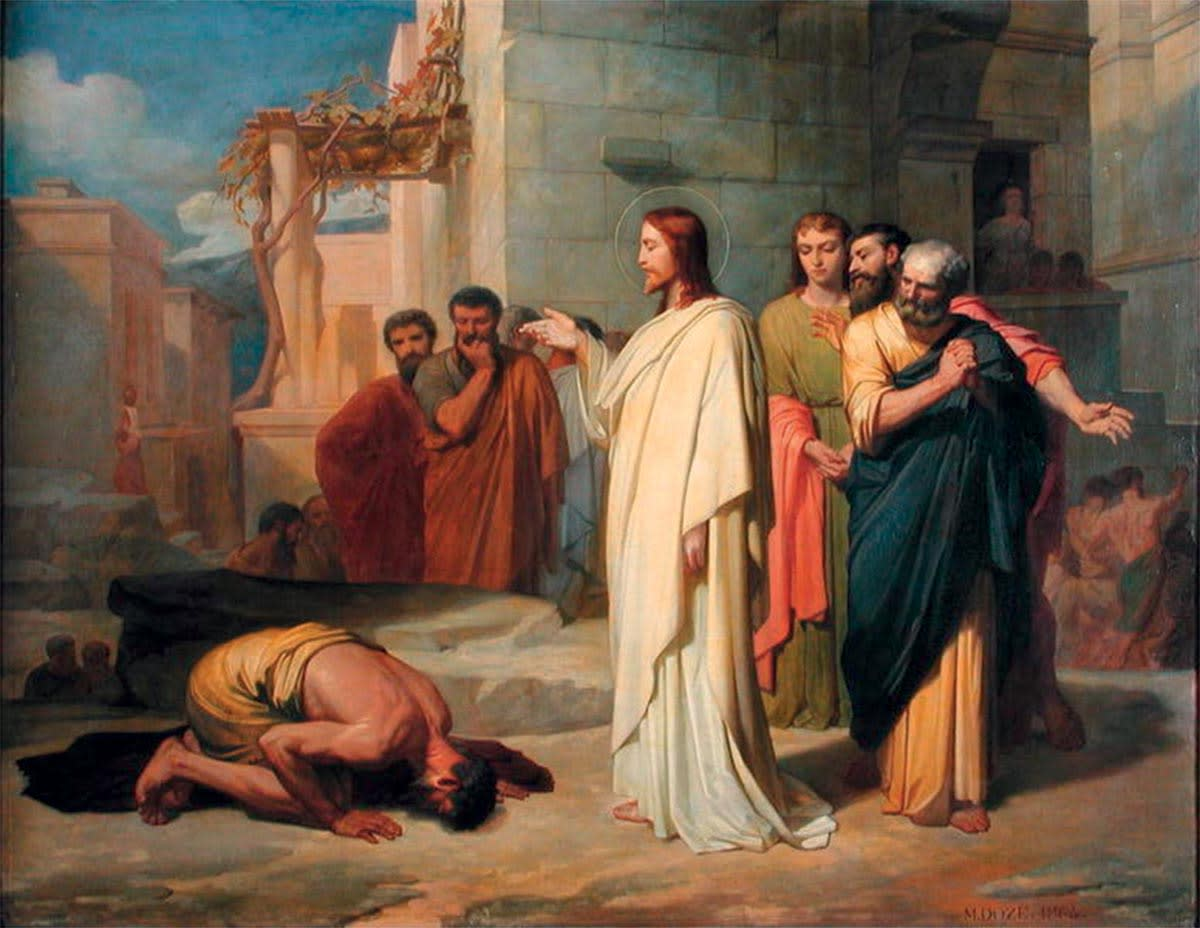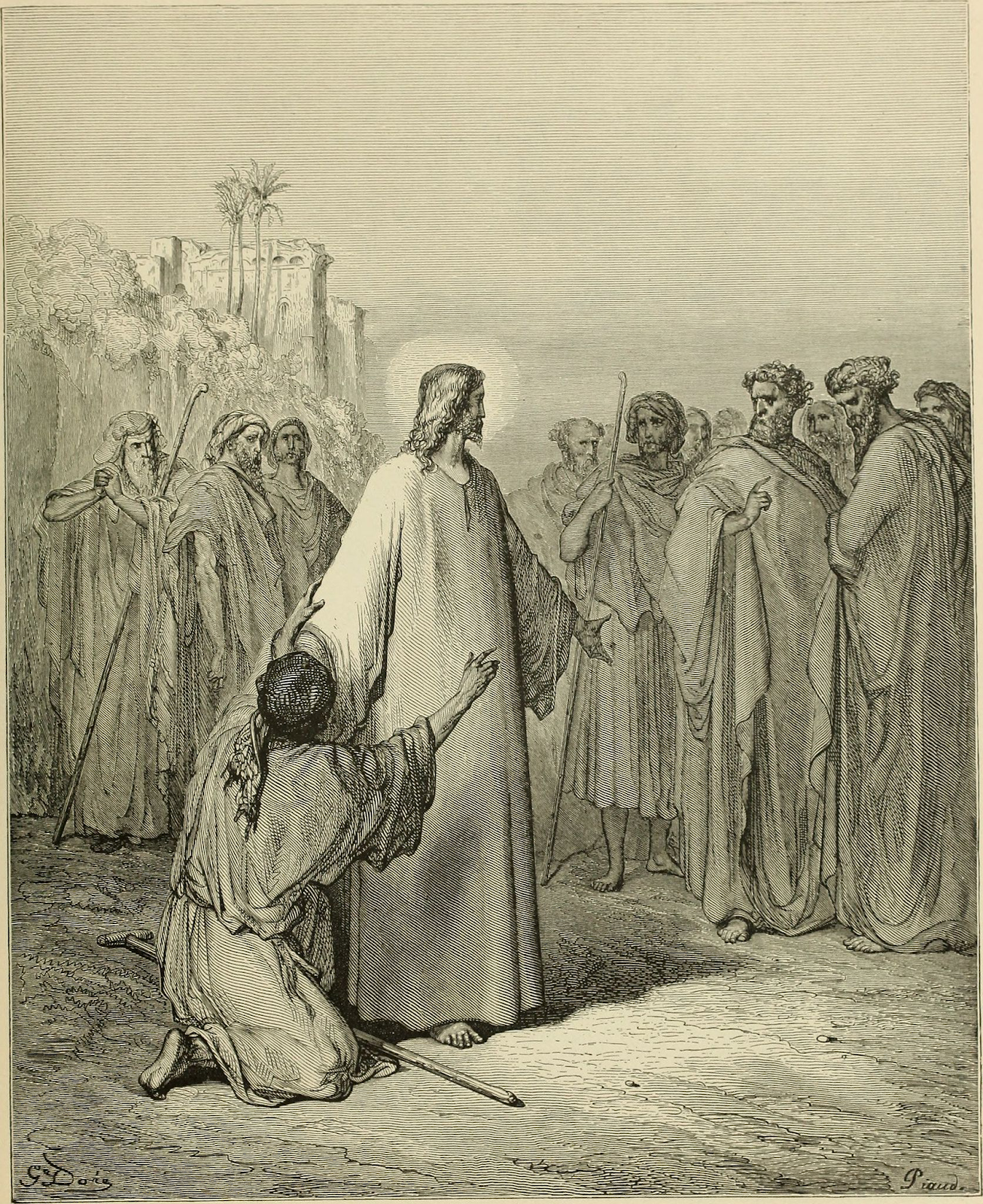As
I sometimes do, I look for a relationship between our passage and our popular
culture. I did not find any decent movies about tax collectors, but did find a
few about evading taxes. A number of well-known actors and athletes were
convicted for evading taxes, but the best story I found is a song that fits our
topic, George Harrison’s “Taxman.”
The
lyrics protest the progressive tax on The Beatles by the United Kingdom’s
Labour government. In 1966, the Treasury took over 90% of their earnings.
Harrison’s lyrics stemmed from reality: “There's one for you, nineteen for
me ‘cause I'm the taxman … Should five
percent appear too small be thankful I don't take it all. Is it no wonder many
people hate the taxman?!”
Now
whatever you think of tax collectors, the system in the Roman Empire resulted
not only in revenue, but also revulsion. Taxes levied by Rome were many and
varied. Because the land of Jesus was an imperial province, the taxes went into
the coffers of the emperor. This is the basis of the question about the
legality of paying taxes to Caesar. The poll tax had to be paid by every male
over fourteen and every female over twelve. That and land tax were collected directly
by Roman officials, but other indirect taxes on imports and exports, road and
bridge tolls, market and slave taxes were imposed by local rulers like Herod.
As
a class, tax collectors were hated by their fellow Jews because they
represented Rome’s foreign domination. The tax collectors overcharged people
and pocketed the surplus. In rabbinical writings they are classified with
robbers. In the synoptic gospels they are bracketed with sinners. Jewish people
considered them to be renegades, who sold their services to the foreign
oppressor to make money at the expense of their own countrymen.
None
of this was lost on Jesus. Yet, in rebuking the self-righteousness of the
Pharisees, Jesus stated that the tax collectors would enter the Kingdom of God
before them because he recognized that there is forgiveness for even the worst
sinners.
Ironically,
this tax collector’s name, Zacchaeus, means “pure.” He straddles two symbolic
worlds in Luke: he is a tax collector and one who responds generously to God’s
call. We read of such people in chapter three: tax collectors who approached
John the Baptist to be baptized and asking what they must do (3:12-13).
Zacchaeus was also a rich man who found it difficult to liberate himself from
his possessions. He’s sort of a combination of Levi the Tax Collector who
follows Jesus as Matthew and the Rich Young Man (chs 5 and 18). It seems that
Zacchaeus made his money not by physically intimidating people, because we know
that he was short, but by operating a pyramid scheme.
The
other thing we know about Zacchaeus is that he climbed a sycamore tree in order
to see Jesus. The last time I climbed a tree, my niece, Simone, was a preteen.
Her dad built her a fabulous tree house, and she invited me into it. I was
about 50, and the tree house had a ladder. Now, when is the last time you
climbed a tree? My point is that children climb trees. And what did Jesus think
when he saw this finely dressed tax collector in a tree looking at him? My
guess is that he thought Zacchaeus was acting like a child.
Jesus
taught that the kingdom of God belongs to children. That said, what grown man
would act like a child and climb a tree only to get a glimpse of someone?
Perhaps a curious or cynical person or perhaps a self-reflective person who
knows that it’s time for a change in life. Scripture is silent on Zacchaeus’
motives, but perhaps Jesus saw someone whose name did fit him? Perhaps Jeus saw
someone who was pure and thought of the Beatitudes he taught on the mountain
and on the plain: Blessed are the pure in heart, for they shall see God. …
Blessed are you when people hate you and when they exclude you and revile you
and spurn your name as evil, on account of the Son of Man! Rejoice in that day,
and leap for joy, for behold, your reward is great in heaven. (Mt 5:8;
Lk 6:22-23) Before I move on to my second point, I ask that you consider this passage
the next time a person asks you about your faith. See them as Jesus saw
Zacchaeus.
My
second point is Table Fellowship. To invite a person to a meal was an honor in
the ancient Near East. It was an offer of peace, trust, brotherhood and
forgiveness; in short, sharing a table meant sharing life.[1] Prior to the Exodus
Passover meal, God provided food in Eden, and fellowshipped with Abraham and
Sarah. Passover developed into weekly synagogue worship of which the Jewish
Sabbath meal was a part.
Table
fellowship is vital to Jesus’ ministry throughout Luke’s Gospel. Luke narrated
ten meals which included dining with tax collectors and Pharisees, his Twelve
Apostles and some slow hearted believers. Understand that not every meal is
the Lord’s Supper, but each is a supper with the Lord, and each relates to his
cross and resurrection. Around those meal tables, Luke included three essential
ingredients: the presence of God in Jesus, which makes it a meal with God, the
teaching of Jesus, and eating with Jesus.
At
the table, Jesus taught about the kingdom of God in which he, the King, is
present to offer the forgiveness of sins. He taught the larger significance
of the meal is a celebration of his forgiveness. Those who fully participated
in fellowship and benefited from it were repentant sinners, except for
someone like Simon the Pharisee who was not.
As
we read through Luke’s ten meals stories, we notice that the later ones in
chapters 13-15, contain references about fellowship and salvation in the
future. When we read today’s passage, that heavenly eating is inaugurated in
the meal with Zacchaeus, which is why Jesus proclaimed that salvation has come
to this house.
As
believers we see that Jesus’ continuing practice of teaching and eating with
his disciples at table has given the church the pattern for our liturgical
worship. In Acts, we read that the believers devoted themselves to
the apostles’ teaching and the fellowship, to the breaking of bread and the
prayers and day by day, attending the temple together and
breaking bread in their homes, they received their food with glad and generous
hearts (2:42, 46). We read in chapter 20, how Paul and other believers
in Troas gathered together to break bread. These passages and others confirm
that from the beginning the church followed the divine pattern through worship
that included teaching and the celebration of the Lord’s Supper that
reaches back into the Old Testament and looks ahead to the wedding supper (Isa
25:6-9; Rev 19:6-9). Friends, Jesus’ table fellowship is at the very heart of
the kingdom of God now as it was then.
With
that, I proceed to my third point, Today. The Greek word for today, sḗmeron, denotes a span of human activity embracing a
day up to the evening. In the Old Testament, day is the time of dealing with
God. What takes place “today” is from God, and means fulfillment, whether in
revelation, salvation or judgment. Today looks back to the past and forward to
the future.
In
the New Testament, we find that today is like the petition in The Lord’s
Prayer, asking God for daily bread. And to escape the day’s anxieties,
believers were called to orient themselves to God’s provision for the day, such
as the weather (Mt 16:3).
We
read in Luke, chapter two, “Today in the town of David a Savior has been
born to you; he is the Messiah, the Lord.” This theme is repeated
throughout Luke. Jesus said to those attending the Sabbath service at the
synagogue in Nazareth, “Today this Scripture has been fulfilled in your
hearing” (4:21).
To
his disciples, he said, “If God so clothes the grass, which is alive in
the field today, and tomorrow is thrown into the oven, how much more will he
clothe you, O you of little faith!” (12:28). To those Pharisees who
reported Herod’s plan to kill Jesus, he replied that they should tell Herod, “I
cast out demons and perform cures today and tomorrow, and the third day I
finish my course” (13:32) To the thief on the cross who asked to be
remembered, Jesus said, “Truly, I say to you, today you will be with me
in paradise” (23:43) This last use is that of one who is on the point
of death, and contrasts the immediate future with the present situation.[2]
Today,
as spoken by Jesus in today’s Gospel, means God’s salvation is not in some
distant future, but is already being inaugurated. Zacchaeus underwent a change
– a change in his heart and in his community. He is no longer marginalized, but
front and center with Jesus and the Church.
Today,
we observe Reformation Sunday, we look back to the historic date of October 31,
1517, when Martin Luther posted his 95 Theses to a church door in Wittenberg,
Germany. Luther knew that the church would be full on the Feast of All Saints,
and purposefully chose October 31st because he knew his words would
then be read.
Reformation
Day has been observed as a holiday since the mid-16th century, but its official
date of October 31st was not set until about 1717. This is when it became an
official German observance and the date from which it would spread on an
international level. People observe Reformation Day religiously, and others see
October 31st as a day to shop or sightsee. It is a good day for you to
take some time to learn more about Martin Luther and the teachings of the
Lutheran Church – and so, I am going to read to you the entire Book of Concord.
Today,
we also celebrate Reformation Sunday by confirming John Blazier and look
forward to admitting him to the Table of the Lord. We do not view Confirmation
as a sacrament, but as a public rite of the church for the baptized who have
been catechized about our confession, life and mission as Church. As you heard
during the Rite of Confirmation, John confessed the Scriptures to be the
inspired Word of God and the doctrine of the Lutheran Church. He studied the
Small Catechism and intends to faithfully conform his life to those teachings,
using the means of grace that comes to us through Word and Sacrament to help
him do so.
Today,
you have the opportunity to participate in Christ’s table fellowship not only
here with the Sacrament, but also as we gather for some informal table
fellowship after worship. Everyday, you have the opportunity to recognize in
another’s heart their desire to see Christ. Like Jesus, you have the
opportunity for table fellowship in your home or theirs, at a coffee shop or
restaurant. You have the opportunity to see in others a pure heart because like
Jesus, you pray “Create in me a clean heart, O God, and renew a right
spirit within me” (Ps 51:10). You have the opportunity every day to
proclaim, “Today, salvation has come to this house, to this heart, to this
humble sinner.” When you do, may the peace of God that surpasses all
understanding keep your hearts and minds in Christ Jesus. Amen.
[1]
Arthur A. Just, Jr., Luke 1:1-9:50. St. Louis: Concordia Publishing House
(1997), pp. 231-241. His words are italicized.
[2] E.
Fuchs, “sḗmeron”, Theological Dictionary of the New Testament, Gerhard Kittel
and Gerhard Friedrich, editors; Abridged in One Volume by Geoffrey W. Bromley.
Grand Rapids MI: William B. Eerdmans Publishing Company (1985), pp. 1024-1025.






